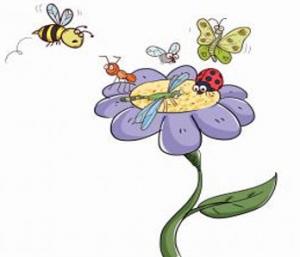
Bees are indispensable pollinators and exist in all types of climate—from forests in Europe, deserts in Africa to the Arctic Circle. But what would happen if all of them just disappeared one day? Here's a look. ******************************************* What if one day you step into your house and find there is no food. The refrigerator is empty and you switch on the television to know more. A news channel tells you that there is a food crisis and the reason for this is that there are no bees left in the world...

40 per cent insect species are declining, a third are endangered.

Junk lovers, welcome a new addition to the group—the bees. Pollen is the only natural source of protein for bees, but every day it is becoming starchier—thanks to the increasing carbon dioxide in the atmosphere, which is sapping the nutritional quality of pollen. Bees need adequate proteins to feed their larvae and maintain their immune systems; some bees store pollen to tide through winters.

The 'buzzy' bees are best at their pollination jobs but they are all set to face serious competition from other insects. According to a new study, insects like flies, wasps, butterflies, moths, ants, thrips and beetles are also effective pollinators of certain crops of global importance. These insects have an added advantage too—they are resistant and less sensitive to environmental changes, scientists say.

